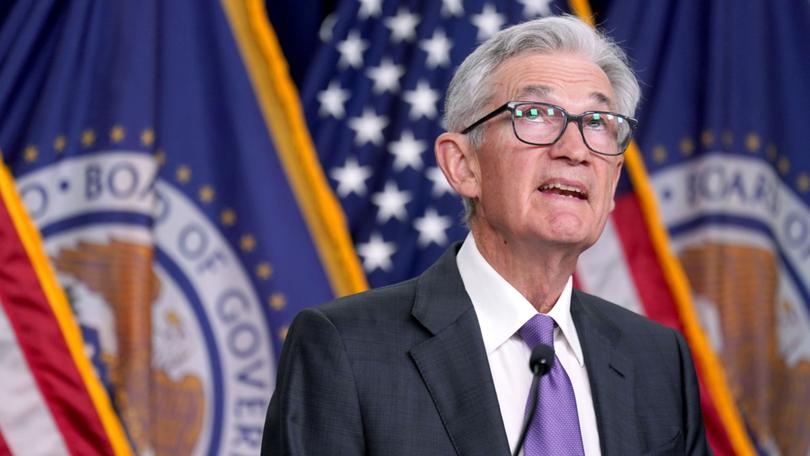International Monetary Fund says don’t bank on rate cuts, raises the alarm on a China slowdown
Interest rates will need to stay elevated for longer than hoped in major economies because inflation is proving tough to crush, a top economic institution reckons.

Interest rates will need to stay elevated for longer than hoped in major economies because inflation is proving tough to crush, the International Monetary Fund reckons.
Slowing the pace of price rises was proving hard and central banks could be forced “to keep borrowing costs higher for even longer,” research director Pierre-Olivier Gourinchas said as the IMF released its economic outlook late on Tuesday night.
On his list was the Federal Reserve — despite signals the United States’ central bank may soon shift down a gear as inflation falls in the world’s biggest economy.
Sign up to The Nightly's newsletters.
Get the first look at the digital newspaper, curated daily stories and breaking headlines delivered to your inbox.
By continuing you agree to our Terms and Privacy Policy.Mr Gourinchas said rates remaining high would push up the US dollar and slow economic growth.
Australia has also hit hurdles bringing down inflation, and borrowers are bracing for local interest rates to stay above 4 per cent through the remainder of 2024.
Recent high inflation data sparked some sharp revisions to rate forecasts, with some commentators junking optimistic estimates that the Reserve Bank of Australia would lower rates later this year.
Instead of a cut, markets now judge a 17 per cent chance of an August increase.
“The good news is that, as headline shocks receded, (global) inflation came down without a recession,” Mr Gourinchas said.
“The bad news is that energy and food price inflation are now almost back to pre-pandemic levels in many countries, while overall inflation is not.”
He said he was concerned inflation in wages and services — such as rent or education — would keep rising as they caught up to the earlier surge in prices of goods.
Governments are also not acting fast enough to slash their debts, Gourinchas said, taking aim particularly at the United States for rocketing borrowing despite a low jobless rate.
The IMF’s prediction for Australian growth was cut 0.1 percentage points to be 1.4 per cent in 2024, while 2025 was unchanged at 2 per cent.
That’s slightly more pessimistic than May’s Federal Budget.
The country’s biggest trading partner, China, was expected to grow 5 per cent this year, 0.4 percentage points higher than last year’s report.
But it is thought to be downhill from there as the huge Asian nation’s population ages and is hit by slow productivity growth.
“By 2029, growth in China is projected to moderate to 3.3 percent, well below its current pace,” the IMF said.
Bank of America was also bearish about China on Tuesday, arguing stimulus would be needed for the country to hit its 5 per cent growth target.
“Weaker-than-expected retail sales data. . . underscored fragile consumption and demand,” the bank said.
ANZ was similarly cautious earlier this week, declaring China’s “official target of 5 per cent (gowth) for 2024 is not a done deal”.
The big four bank pointed to an extraordinary contraction in China’s property market, with sales falling 27 per cent in the six months to June.
Both Bank of America and ANZ said they would closely watch a Chinese Politburo meeting later this month.
